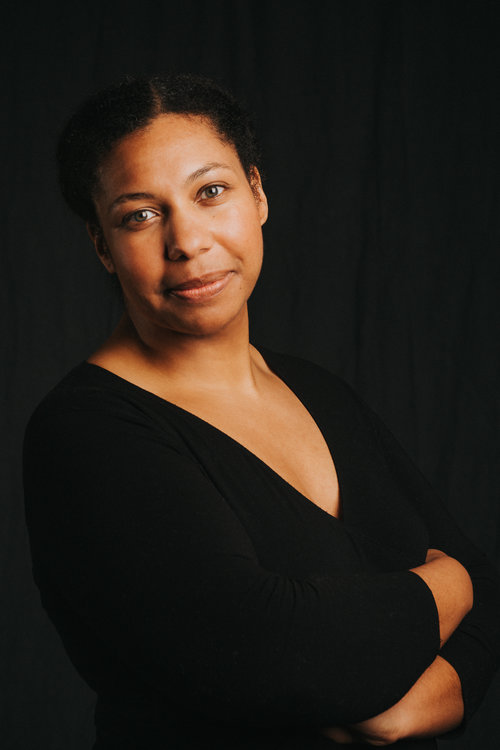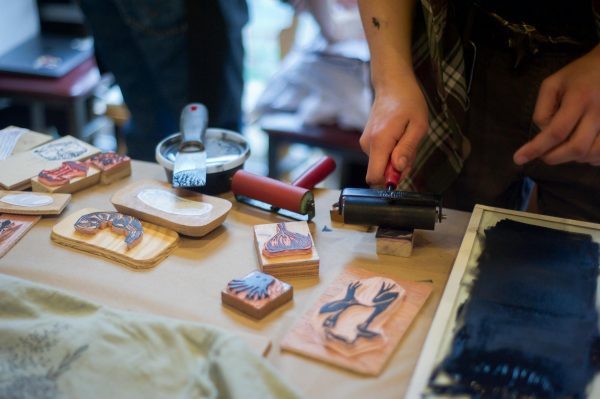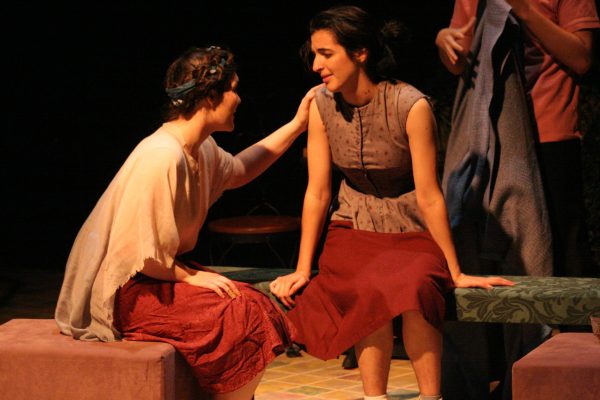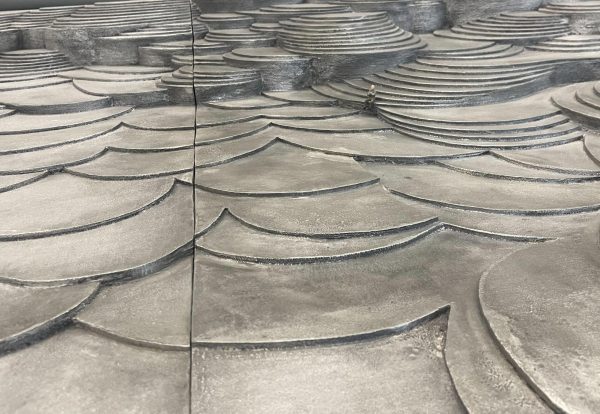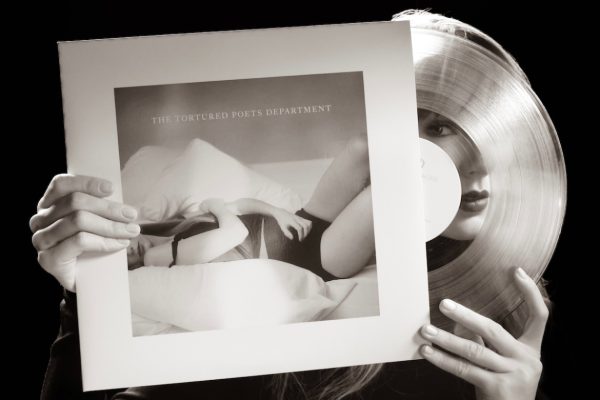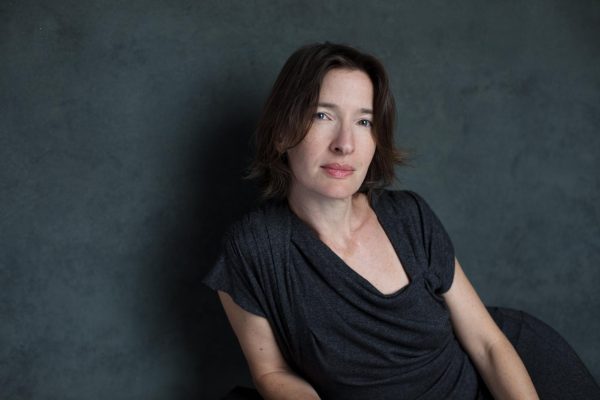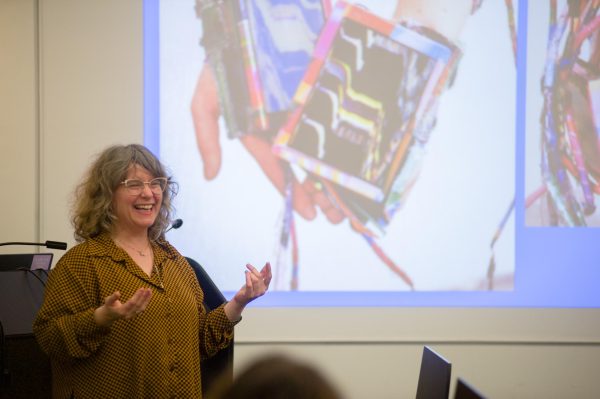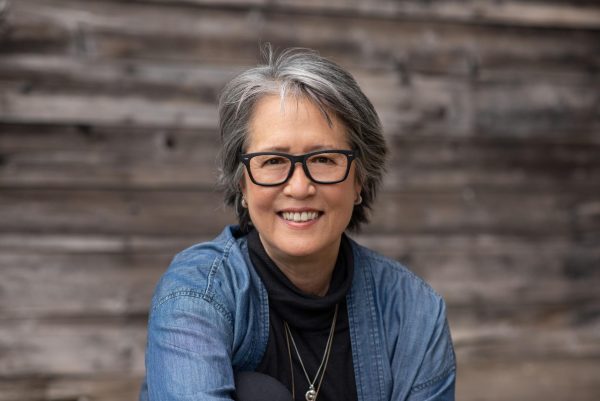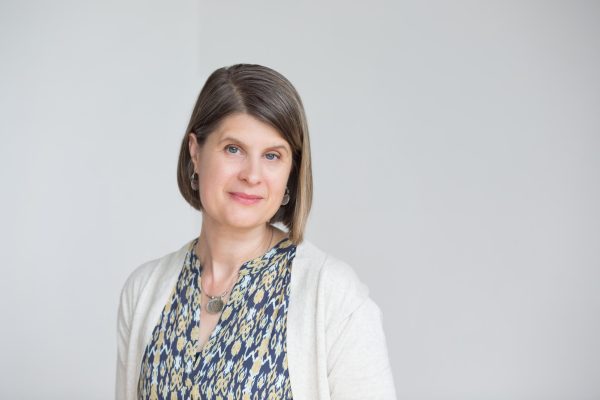Chanda Feldman, Assistant Professor of Creative Writing
Chanda Feldman
Assistant Professor of Creative Writing Chanda Feldman read her original poetry during the Allen Memorial Art Museum’s Tuesday Tea series this week. Some of her poems were directly inspired by a multimedia exhibit currently on display in the Ripin Gallery, Radically Ordinary: Scenes from Black Life in America since 1968. Feldman has been teaching at Oberlin since the fall of 2017. This year, she was one of two professors in the department to be offered a coveted tenure-track position (alongside Assistant Professor of Creative Writing Emily Barton). Feldman specializes in poetry, and she has received awards and fellowships from prestigious organizations such as the National Endowment for the Arts and the Sustainable Arts Foundation, among others. She was a Wallace Stegner Fellow at Stanford University, and has previously taught at Cornell University. She is also a manuscript reader for The Virginia Quarterly Review. While Feldman has been published in numerous journals, she released her first full-length poetry collection, Approaching the Fields, last February.
This interview has been edited for length and clarity.
Approaching The Fields was released in February. What has it been like to have that done and out in the world?
It’s been a really wonderful experience. I’ve done a lot of readings for it, and so I guess the best part is that I get to see immediate responses to the work. People come and talk to me after I read, and they tell me their stories that intersect with stories in the poems. So that’s been really wonderful. That’s probably been the major highlight of publishing a book.
What have you been working on since Approaching the Fields was published?
There are so many artworks in the Radically Ordinary exhibit that I felt really drawn to, so I wrote a couple of poems in response to images in the exhibit. There are more that I would like to write poems for, so I think I’m going to continue working on ekphrastic poems [or poems based on visual art] for a little while. I’m teaching a documentary poetics class this semester, and I’m also figuring out ways that I can incorporate actual documents into my poems.
Can you explain what documentary poetics is?
Documentary poetics is a mode of writing poetry in which you bring evidence into the poems. And that evidence can take many forms: from oral ethnographic accounts — oral stories coming into a poem, [perhaps] those that usually get left out of the dominant culture’s narrative of history — to legal documents. There’s a really wonderful book by the poet Layli Long Soldier called [WHEREAS: Poems] where she takes up a speech [by President Obama] … she takes up those words, and it’s an apology offered to Native Americans and then interacts with this kind of official American document and shows how it doesn’t match up to the needs of that community, how it falls short in actually being a genuine way of communicating. … Overall, the genre — some people refer to it as a genre [and] some people say that it’s not really a genre, it’s a mode of poetry — is just one aspect of what poetry can do, [and that is] provide an alternative history in the form of a poem. By doing that, it’s allowed to sort of reach into the world of the objective and the journalistic, perhaps. But it can also provide feeling and emotional and personal response and kind of use both of those together to give a fuller experience to what’s actually happening around us.
What are you excited about right now in poetry? Any specific works or poets?
There are a lot of things that I’m excited about. One is this book by Daniel Borzutzky called Lake Michigan. It [mixes]documentary poetics and persona poetry [and responds] to Black Lives Matter and [other] protests, embodying what it would be like to be in those protests and standing up for one’s humanity. There’s a really wonderful book by the poet Rickey Laurentiis called Boy with Thorn. Overall, the project talks about ekphrastic work, but also poems about the Black experience — and those also appear in the ekphrastic work. [There are also] some lovely long poems in the book, and I just find the kind of mix of lyric in his work and this kind of radical politics that gets embodied in the form of the ekphrastic poem just really powerful.
Do you have any favorite particular works or genres to teach? What things are you particularly hoping to impart in classes?
I mostly teach poetry at Oberlin, and in my classes I generally try to teach a range of poetry. I’m interested in teaching some classic poetry that I respond to, but I’m also interested in exposing students to contemporary works so that they can see how poetry is operating right now. In any class I teach, I try to put in poems by Rita Dove and Robert Hayden and C. D. Wright, and it’s always interesting to see how students respond to that work because it changes from class to class. I love teaching this documentary poetics class that I’m teaching this semester, and I hope that’s something I’ll be able to teach again in the future. I have a personal interest in African-American poetry, and so that would be an interesting class to teach here — like an African American poetics class, going from traditional poetry to the avant-garde.
What interests you about teaching undergraduate writing specifically?
My favorite part of teaching undergraduates is that they are — at least here at Oberlin, this particular student body — so open to experimentation. It gives a lot of freedom and challenge and inspiration for me, because I feel like I can bring almost any poem and any exercise into the classroom and students will be like, “Yeah, let’s do it!” So that’s one of my favorite things. When [students] take Creative Writing classes, they’re usually there because they really want to be there. So there’s this passion and energy in the classroom, and this desire to really spend some time working with the craft of literature. Yet at the same time, there’s not this hindrance of “Well, this is how I should write.” I guess what I’m trying to say is there’s an openness to style still, whereas at the graduate level students might have a sense of “Well, this is what I sound like” or “This is how my poems or my fiction should look.” I find that students are more open as undergraduates. So that’s really exciting.
You talked about passion and energy being really present in undergraduates. When do you think you found that passion and energy for writing and knew that you wanted to do that?
Where that first came for me was as a high school student. I was very lucky to [go to] a high school where they offered creative writing.
[My poetry] was encouraged by my creative writing teacher. So I would go home, sometimes neglecting my other work, putting off my math and my English essays so I could write poems. But there was an outlet for it, and I had, in my creative writing teacher, a mentor. That’s where wanting to be a writer really solidified for me.
I’m curious what the relationship is between the familial, the historic, and the personal for you in your writing.
I think they’re really intimately linked. I believe that growing up in the time period that I grew up in — the ’70s, ’80s, and ’90s — and coming from a very specific background of growing up in the South, and being in a large family that came from a rural life in the South, an agricultural life in the South, and my parents growing up in America during legal segregation, that the laws of the United States impacted their lives very directly and specifically, and the culture. And so in that way, I think I conceive of history as being very intimate.


